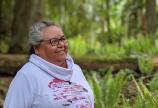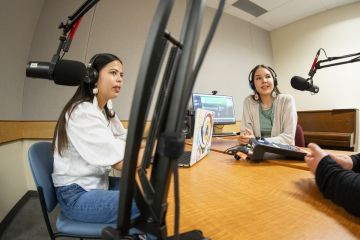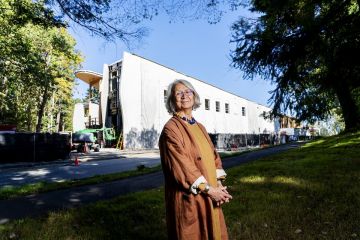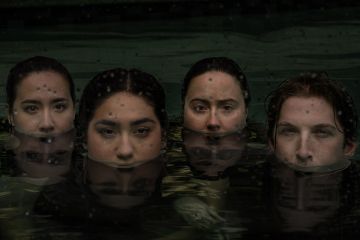Google features BC Indigenous language in latest launch
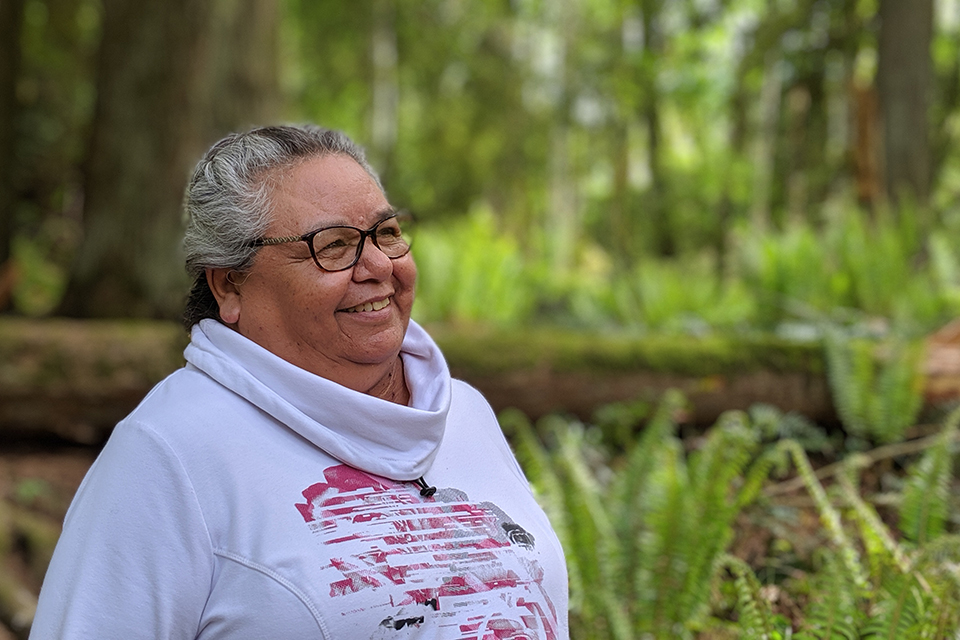
The global release by Google today of a new project involving Indigenous languages highlights an initiative led by University of Victoria anthropologist Brian Thom and Indigenous languages teacher yutustanaat Mandy Jones (Snuneymuxw First Nation) including words, phrases, a proverb and songs in the Hul'q'umi'num' language.
View the Google blog post about the launch
“It is critical to value and treasure the wisdom that comes from Hul’q’umi’num’ teachings like this,” says Thom, an ethnographer and leading expert in the interplay between Indigenous land claims and colonial discourses in Canada and internationally. “It is an honour and privilege to facilitate long-term research collaborations that celebrate and foreground Indigenous knowledge and relationships to land.”
The “Celebrating Indigenous languages” Google Earth Voyager story, unveiled on the UN’s International Day of the World’s Indigenous Peoples, is available in 10 languages internationally and encompasses 55 Indigenous languages in 27 countries from Australia, India, Ecuador and Chile to Cameroon, Pakistan, Turkey and Finland. People can use this new tool to play sound clips and hear the voices of 55 Indigenous speakers sharing greetings and traditional songs, and emphasizing the vital importance of Indigenous language revitalization. Thom was part of a small team that advised Google in the development of Google Earth’s new capacity to play audio clips, a feature he often heard requested by Indigenous communities.
Thom has been collaborating with yutustanaat and the Hul'q'umi'num' communities since the early 1990s. To create the Voyager story, they worked with students from Ladysmith Secondary School to create audio recordings of yutustanaat, who has a love for the language and a passion in teaching it to local youth.
The Hul'q'umi'num' language is spoken by Island First Nations between Nanoose Bay and Mill Bay including Snaw-naw-as First Nation, Snuneymuxw First Nation, Cowichan Tribes, Stz'uminus First Nation, Penelakut Tribe, Lyackson First Nation, Halalt First Nation and Malahat First Nation.
Thom came to UVic in 2010 after more than 13 years as a researcher and negotiator for several Coast Salish First Nations in the BC Treaty process. To support partnerships between researchers and Indigenous communities, he established UVic’s Ethnographic Mapping Lab as a collaborative space for research projects such as traditional use studies, or cultural site and place name mapping. This work uses practical technologies like Google Earth in very powerful and community-accessible ways.
From language revitalization to Indigenous law, UVic researchers are working with Indigenous communities and organizations in Canada and around the world to understand, revitalize and celebrate Indigenous traditions and cultures. More info
Ahead of the 2019 International Year of Indigenous Languages, UVic produced a video to share five ideas to support Indigenous language revitalization in Canada, including tips on words and phrases. Learn more
The new Google Earth Voyager project is being highlighted today on the main international Google desktop search page around the world including Google’s .com, .ca, .co.nz, .co.uk, .com.au, .com.br, .co.jp, .de, .es domains.
URL: http://goo.gle/indigenouslanguages
Google blog post: https://www.blog.google/products/earth/indigenous-speakers-share-their-languages-google-earth/
A media kit containing high-resolution photos is available on Dropbox.
See the online campus story for more information about this project.
-- 30 --
Photos
Media contacts
Dr. Brian Thom (Dept. of Anthropology) at 250-853-3895 or bthom@uvic.ca
Tara Sharpe (University Communications + Marketing) at 250-721-7636
In this story
Keywords: Indigenous, languages and linguistics, technology, international, anthropology
People: Brian Thom

